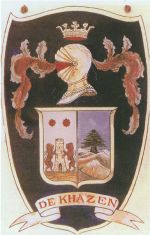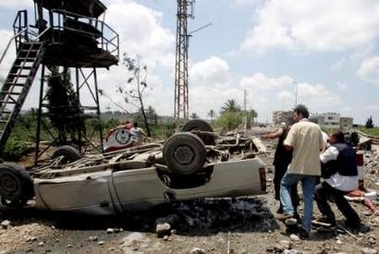 Nick Blanford, The Times Correspondent in Beirut, is on the border between Lebanon and Israel, where two Israeli soldiers were abducted by Hezbollah this morning, prompting a massive military response.
Nick Blanford, The Times Correspondent in Beirut, is on the border between Lebanon and Israel, where two Israeli soldiers were abducted by Hezbollah this morning, prompting a massive military response.
"This morning’s Hezbollah raid has puzzled many Lebanese people as well as satisfying their supporters. The obvious explanation as to why the group has decided to open a second front with Israel is that it wants to stand in solidarity with the Palestinians and put pressure on Israel with their own hostage negotiation.
"So in that sense, the capture of two Israeli soldiers fits perfectly with Hezbollah’s ideological goals but on a practical level, the group is also taking an enormous risk. Hezbollah is under an awful lot of domestic pressure from Lebanese who support its political movement but are unhappy that it remains an armed organisation. Today’s violence has invited a huge response from Israel.
"That said, I’ve spent the morning driving through Shia villages in southern Lebanon where there has been a feeling of happiness and celebration. Children are flying yellow Hezbollah flags and cheering supporters have set up impromptu roadside stops to hand out sweets, a traditional gesture of celebration.
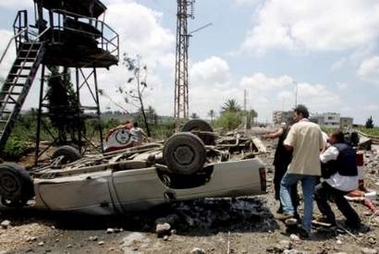 DAY2, BBC
DAY2, BBC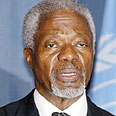 UN Secretary General Kofi Annan called Wednesday for the immediate release of kidnapped Israeli soldiers and condemned Israel
UN Secretary General Kofi Annan called Wednesday for the immediate release of kidnapped Israeli soldiers and condemned Israel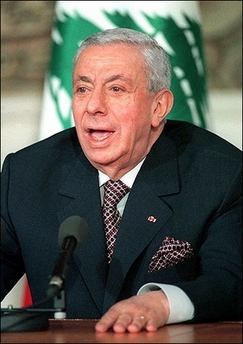 New York Times BEIRUT, Lebanon, July 7 (Agence France-Presse)
New York Times BEIRUT, Lebanon, July 7 (Agence France-Presse) 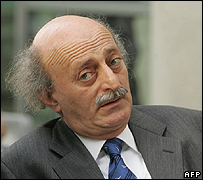 Security officials in Lebanon say that one person has been killed and five wounded in fighting between supporters of rival Druze politicians. The clashes were between supporters of the pro-Syrian former minister, Wiam Wahhab, and the anti-Syrian politician, Walid Jumblatt.
Security officials in Lebanon say that one person has been killed and five wounded in fighting between supporters of rival Druze politicians. The clashes were between supporters of the pro-Syrian former minister, Wiam Wahhab, and the anti-Syrian politician, Walid Jumblatt. 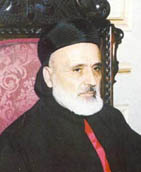 Patriarch of the Maronite Catholic Church to Make Historic Stop in the Greater Boston Area July 12-14,
Patriarch of the Maronite Catholic Church to Make Historic Stop in the Greater Boston Area July 12-14, 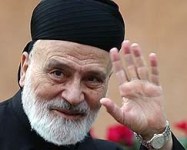 ST. LOUIS POST-DISPATCH, At a meeting with religious leaders Saturday, Lebanese Cardinal Nasrallah Peter Sfeir, patriarch of the Maronite Catholic Church, stressed the need for people of all faiths to help quell global conflict that is often rooted in religious difference."Each of us has a responsibility to look after each other," he said. "We can co-exist in harmony and respect for each other if we keep love in our hearts."
ST. LOUIS POST-DISPATCH, At a meeting with religious leaders Saturday, Lebanese Cardinal Nasrallah Peter Sfeir, patriarch of the Maronite Catholic Church, stressed the need for people of all faiths to help quell global conflict that is often rooted in religious difference."Each of us has a responsibility to look after each other," he said. "We can co-exist in harmony and respect for each other if we keep love in our hearts."